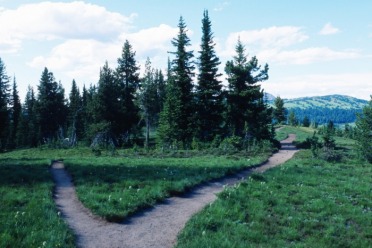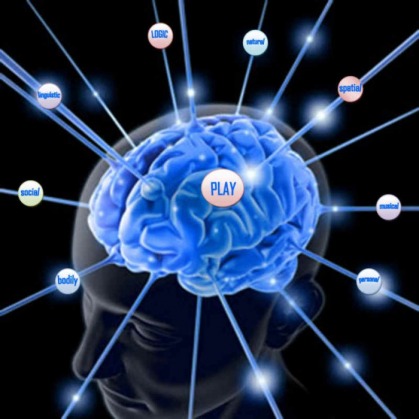Vocademia: an exploration and a construction
Concluding Remarks at this the First Staging Post

On this page I try to tie up all the other pages into a few final thoughts, on what I have done in this exploration, what I have learnt, and what my next steps will be. My exploration, and strategy is by no means finished. As I have made clear this is very much a work in progress, As I have written elsewhere, this work will come to a better conclusion with better measurable data once the cycle is completed at the presentation and exhibit planned for November 24th. As Guy Claxton states it will need "cumulative development" for a project to take hold, and this is a very small step on a very long journey.
Even if, as it is most probably likely, my Vocademic idea falls by the wayside, in the tide of new and much better thought out models of pedagogy, I have learnt a lot from opening up this area for myself, namely:-
1) There is an unequal bias in education which is to the detriment of many, and lauds only the few.
2) There have been several earlier observations along these lines, but little has changed since state education was set up in 1870.
3) In modern times the Diploma is one such attempt at doing something about this bias, but is so far failing.
4) My Vocademic idea may be too creative and in need of much more rigour if it is to offer anything useful to this bias.
5) But it is a start, and one I am quite proud of, not least because it has encouraged me to be constantly reflective about my practice, and vigilant about its delivery.
6) I have glimpsed a better way to improve learning in my own practice, and surprisingly this is centered on doing less! If we truly want to improve learning then we must begin to give up on the transmitter model of teaching, and trust in a newer approach, whereby we give our learners more freedom to control their own interests and learning.
7) There is much talk in the modern Media world about Collective Intelligence, an idea I think can be brought to our classrooms. As Pierre Levy argues, "No one knows everything, everyone knows something, all knowledge resides in humanity." (p. 61) If the teacher can become closer to his learners, through a more democratic understanding of knowledge, then learning can happen much more freely and enjoyably.
8) Vocademic learning and the Model Manipulation Method are attempts grounded in all forms of equality.
Even if, as it is most probably likely, my Vocademic idea falls by the wayside, in the tide of new and much better thought out models of pedagogy, I have learnt a lot from opening up this area for myself, namely:-
1) There is an unequal bias in education which is to the detriment of many, and lauds only the few.
2) There have been several earlier observations along these lines, but little has changed since state education was set up in 1870.
3) In modern times the Diploma is one such attempt at doing something about this bias, but is so far failing.
4) My Vocademic idea may be too creative and in need of much more rigour if it is to offer anything useful to this bias.
5) But it is a start, and one I am quite proud of, not least because it has encouraged me to be constantly reflective about my practice, and vigilant about its delivery.
6) I have glimpsed a better way to improve learning in my own practice, and surprisingly this is centered on doing less! If we truly want to improve learning then we must begin to give up on the transmitter model of teaching, and trust in a newer approach, whereby we give our learners more freedom to control their own interests and learning.
7) There is much talk in the modern Media world about Collective Intelligence, an idea I think can be brought to our classrooms. As Pierre Levy argues, "No one knows everything, everyone knows something, all knowledge resides in humanity." (p. 61) If the teacher can become closer to his learners, through a more democratic understanding of knowledge, then learning can happen much more freely and enjoyably.
8) Vocademic learning and the Model Manipulation Method are attempts grounded in all forms of equality.
Some random thoughts left purposely in an aphoristic manner for the purposes of playful reflection

Would like to instill a better research methodology in future, more playful - but this is an issue that what I am trying to find out about may be deemed silly and I would get few meaningful responses - its a question of balance, trying to bring the many truths that happen in INFORMAL situations, into a FORMAL data gathering method - Gauntlett's Serious Play approaches this method I think
Sennet - making is thinking
Gauntlett - playing is thinking
Claxton - smiling is thinking
14-19 is a unique stepping stone time in the life of all human beings - the most important in terms of direction, as if you commit to one path it is virtually impossible to retrace one's steps to reconsider the other path.
a fork in the road - academic or vocational - serious affects on identity, hence success (Gladwell)
Shift Happens - need to be more flexible - to specialise is to minimise - in so many ways, especially at 14-19
academic or vocational = too broadstroke stereotyping of not only who one is, but who one could become!
not convinced that having 2 distinct staging posts - HE or Industry actually helps one's development
Gap Year = time to consider
need a radical restructuring of qualifications in the universitiy curriculum to include hands-on stuff/ for businesses to improve their training approach - personal research and development techniques - govt offer incentives like Apprenticeships
Vocademia - brings them together, and so destroys the limits of 2 to the perfundity of many different options
links to a fundamental aspect of our UK culture - class, not equality, straightjackets and not opportunity
perhaps it is too late by 14 to reverse the identity that a person has acquired ? but it does seem that by 18 or 19 there truly is no turning back
It is too early to say whether the diplomas are the future, but I believe they point future generations in a better direction than one structured on the traditional path of specialising and limiting oneself.
shouldn't be labelled as good at one subject over another but judged on one's ability to collaborate to help complete a project, a project that may well involve English, Maths, Science, Drama etc etc etc - todays learners should be encouraged to be and act in a renaissance way if the world is indeed changing and altering in completely unforseeable ways, then surely the best way to cope is keeping oneself flexible and balanced.